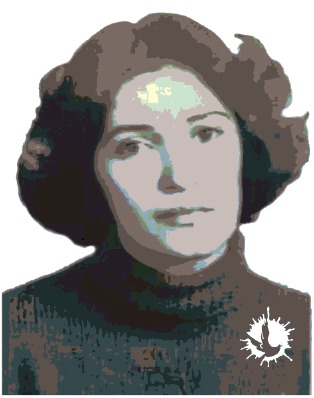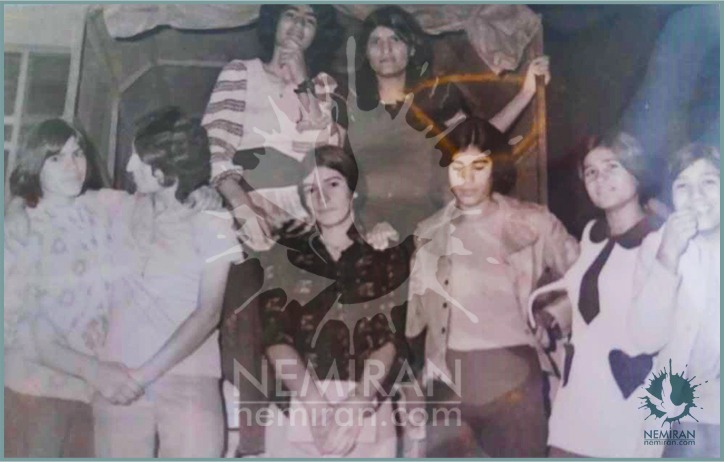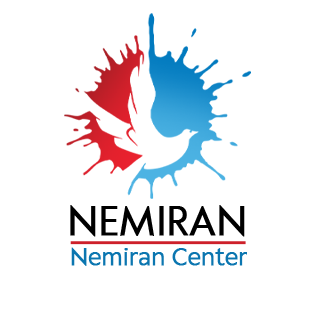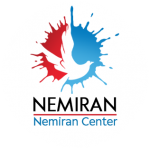Her mother waited from morning till night and hoped to get a permission to visit Fakhri. One day a guard named “Golzar” had told her: “If the grass grows under your feet, I will not let you see your child.”
Fakhri was born on 1/6/1335 Iranian Calendar (23/8/1956) in the border city of Sardasht. Her father, Ahmad, and her mother, Hajar, were both from Mahabad. She was the third child in the family. She completed her primary education up to the third year of high school in Sardasht and two years of college in Bandar Abbas. She started her job as a teacher in the village of Qolta the region of Sardasht. While teaching, she studied Art at the Tehran University. She received a diploma in acting. She was very interested in art. She was also interested in reading since childhood. She has subscribed to the children’s magazine “Keyhan Bacheha”. She had archived them and had made a large collection.
She spent a lot of time reading. She bought a lot of books since high school. She had affection for writing. Sparks of her writing talent were evident since her elementary education. She always got excellent grades in the school subject Persian. Gradually she started composing poetry. She was also interested in painting, calligraphy, photography, handicrafts, music and tailoring. She used to travel to Mahabad to learn to play the guitar due to the lack of facilities and despite a lot of difficulties. While teaching in Sardasht, she wrote a play and performed it with the help of students.

One of Fakhri’s relatives remembers: “One day when we were going to school together, she saw an oil shop girl who was wearing men’s clothes because she did not want to be blamed by others. She got upset. She immediately took out her notebook and pen and wrote a poem about her describing her pain. She had many manuscripts, poems and books. Unfortunately these all got lost. Her mother burned all these things in the oven for fear that the rest of her children might get caught by the regime after Fakhri’s execution. This upset the whole family, but her mother had no other choice. She had suffered indescribable due to Fakhri’s death and she could not bear another tragedy. “Mullah Avareh” was martyred by the Pahlavi regime in Sardasht while she was in primary school. Although she was about ten years old, she was deeply moved and cried. She asked her mother: “”Why was he executed? What had he done that he was punished with death? He wanted freedom, which is the right of all Iranians.” Shortly afterwards, Esmail Moeini and her companions were arrested and executed by the Shah’s regime. Their corpses were flaunted in the streets in a horrible way. One of Fakhri’s relatives remembers those days: “We got the news that Fakhri got very ill and depressed as a result of the killing of Martyr Suleiman Moeini. We visited her, she was crying all the time. She said she saw a scene that she will never forget. She detested the Pahlavi regime. The spirit of struggle for freedom sprouted in her those days.”
If a voice of freedom is silenced, thousands of voices will be raised. But the dictators are unaware that they dig their own graves.
As a student, she sold photos, posters and books for the benefit of poor children in the south of Tehran.
As a student, she sold photos, posters and books for the benefit of poor children in the south of Tehran. After her execution, her family found out that she had donated money out of her monthly salary for several poor families. She was truly a friend of the oppressed, she was a good speaker. She was rational and thorough in her decisions. That was why other people trusted her. Anyone who asked her for advice on issues got the right advice from her and her opinion was always accepted. She always carried a camera, paper and pen with her. She used every opportunity to write, to take pictures and to read. The last time she traveled from Tehran to Sardasht, she stayed in Mahabad due to the conflict in the region between Kurds and the Islamic Regime of Iran. She helped the wounded and cared for them day and night. Due to the blockage of the road, she walked from Mahabad to Sardasht and passed from village to village. She reached Sardasht twenty days later; the city of Sardasht was bombed by Saddam’s regime. Her father’s house was destroyed and her mother and brothers were injured in that incident. About two weeks after the bombing, she went from Sardasht to Mahabad to rent a house. She was arrested by the Revolutionary Guards and transferred to Mahabad Prison.
Her family regularly went to the prison of Revolutionary Guards, but they were refused to visit her. Her mother waited from morning till night and hoped to get a permission to visit Fakhri. One day a guard named “Golzar” had told her: “If the grass grows under your feet, I will not let you see your child.” A few days later, she heard from one of the Revolutionary Guards that Fakhri had been transferred to Urmia Prison. She searched for two weeks; no one told her the truth.
Her family asked for help at one of their relatives who held the position of deputy governor of the province. He searched and found out that Fakhri had been executed and her corpse was kept in the morgue. With his help, the body was handed over to the family. It was immediately transferred to Sardasht. The corpse was constantly bleeding. Her father was bandaging the wounds. At that time, few people were living in Sardasht due to Peshmerga clashes and Saddam’s airstrikes.
Some young people accompanied the body to the funeral with the national anthem of Kurdistan. The government was also afraid of her tomb. Her tombstone was constantly broken by the regime perpetrators. Her family restored the tomb again and again. Fakhri’s parents referred to the IRGC several times. They asked for her last will she had written, but they got no answer.
They referred to the Sardasht governor’s office and asked the governor of Sardasht, Mr. Moghimi, to intervene and to ask the Revolutionary Guards of Mahabad to hand over the last will of Fakhri. They also asked for the reason of her execution and if there had been a condemnation at all. After a long search, the governor said that nobody would take responsibility and wondered who had committed this crime and how it came about.
May the memory of Fakhri who sacrificed her life for humanity be cherished forever.
One of Fakhri’s comrades, who also was her responsible in the organization, recalls this:
“It was in the late summer of 1980. Fakhri wanted to travel from Sardasht to Tehran. When the bus arrived in Mahabad and reached the first checkpoint of the Revolutionary Guards . The Revolutionary Guards suspected her and took her off the bus, suspecting that she might be a Peshmerga. After searching her belongings, they found an armlet or logo of the Fadaiyan Khalq organization (a leftist political organization), an armlet of a first aid person and also a first aid kit in the pocket of her Kurdish pants. These found things were enough to arrest her and take her to the cruel torture chamber of the Revolutionary Guards in Mahabad. She was transferred to Urmia Prison a few days later. After some time, Mullah Hassani, the Friday prayer leader and religious judge of Urmia at the time, ordered the shooting of her along with Mansour Khosravi and a number of other Kurdish detainees in retaliation for the killing of several Revolutionary Guards who had been killed in clashes with Peshmerga of the Kurdistan Democratic Party of Iran. When Fakhri’s family received her corpse, they saw that her body has been shot dozens of times and blood was still flowing from her lifeless body. The body of this angel was immediately buried by the courageous people of Sardasht in the cemetery of this city.”
Her memory may be cherished forever.


